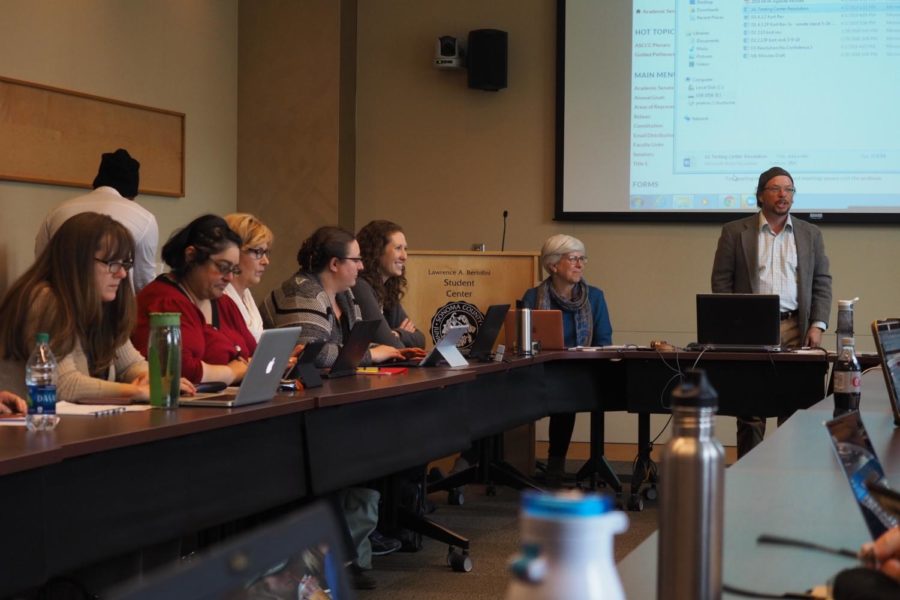The Academic Senate voted to direct the Santa Rosa Junior College Board of Trustees to put President Dr. Frank Chong on probation for one year, after approving a resolution that declared no confidence in the administration and Chong’s leadership.
Academic Senate President Eric Thompson said he would take the resolution to the board at its monthly meeting April 10.

The vote came after a tumultuous week at SRJC that began with a 4:18 p.m. March 29 email by Vice President Dr. Mary Kay Rudolph that stated the college would cut most summer school class offerings. Faculty, staff and students reacted with shock, anger and protests, including a Monday sit-in at Chong’s office.
Earlier Wednesday, Chong reversed the decision after meeting with community leaders and said the college will continue to offer the summer and fall schedules as originally planned.
Before the Academic Senate vote, department chair Brenda Flyswithhawks read a resolution from the behavioral sciences department that alleged the administration’s recent unilateral decision to cut the majority of summer classes showed an inability of the current administration to effectively run the college.
“The decision to cut summer courses would create anxiety, chaos, financial loss and destruction in the lives of our students including transfer students, high school students, students on visas, students needing prerequisites for other courses, and the students depending on scholarship,” Flyswithhawks read.
Her department’s resolution had 15 reasons for declaring the no-confidence vote for Chong, Rudolph and Vice President of Finance Doug Roberts. The three have been credited for making the unpopular decision.
During the senate meeting, questions arose about whether the vote to amend the resolution of no confidence to include a probationary period for Chong would be a violation of the Brown Act.
The resolution’s description available to the public for the agenda item did not include the probationary period along with the rest of the no confidence wording.
The Brown Act is a California state law that mandates public meetings such as the Academic Senate post agendas and public governing bodies conduct all business in public.
Student Trustee Robert Martinez said that agenda items in public meetings must be shared with the public 72 hours before the meeting. The senate would violate the Brown Act by voting to change the content of the no confidence vote during the meeting.
Jordan Burns, vice president of the board of trustees, agreed with Martinez.
“I just want to state for the record that the irony is blistering,” Burns said. “The irony of voting for something that has so clearly been told to you by your student leader to be a Brown Act violation, and the irony in the thought that this is to be more transparent and include more shared governance, and yet you continue to vote on something that I know for a fact from my training and legal counsel that you cannot vote on in a discussion here because of the Brown Act and 72 hours notice.”
Thompson and others called the situation an emergency and said that factor justified bypassing the Brown Act rules.
Deliberation continued about the qualifications of an emergency before the senate eventually voted to suspend the Brown Act and then vote to approve the amended resolution of no confidence for Chong and to suggest the board put him on probation for one year.
“It’s about accountability and just leadership,” Flyswithhawks said. “A vote of no confidence does not mean that anyone in this room wants to terminate the president. It does mean that we want the board of trustees to know that this is urgent. I do believe that when things like this happen in an institution, it’s a place for opportunity.”


